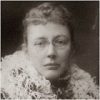It does not undo harm to acknowledge that we have done it; but it undoes us not to acknowledge it.
Mignon McLaughlin (1913-1983) American journalist and author
The Neurotic’s Notebook, ch. 4 (1963)
(Source)
Quotations about:
acknowledgment
Note not all quotations have been tagged, so Search may find additional quotes on this topic.
We are firm believers in the maxim that for all right judgment of any man or thing it is useful, nay, essential, to see his good qualities before pronouncing on his bad.
Thomas Carlyle (1795-1881) Scottish essayist and historian
“Goethe,” Foreign Review No. 3 (1828-08)
(Source)
Reviewing Goethe's Sämmtliche Werke, Vollständige Ausgabe Letzter Hand (1827). Reprinted in Carlyle, Critical and Miscellaneous Essays (1845).
No matter what a man or a woman does for a living, it is part of the human mechanism to expect and need recognition of some sort. Beyond the security and the paycheck is the palpable hunger of a person to have an identity of his own.
Rod Serling (1924-1975) American screenwriter, playwright, television producer, narrator
Patterns, Introduction (1957)
(Source)
FAUSTUS: Blasphemy and prayer are one. Both assert the existence of a superior power. The first, however, with conviction.
The vanity of man revolts from the serene indifference of the cat.
Not listening is probably the commonest unkindness of married life, and one that creates — more devastatingly than an eternity of forgotten birthdays and misguided Christmas gifts — an atmosphere of not loving and not caring.
Apologies rebuild the bridge that gets severed when we hurt someone else, either intentionally or by accident. Apologies don’t require us to grovel or wallow in guilt. We simply acknowledge that our actions were insensitive, unkind, or harmful and say we are sorry.
Charlotte Kasl (d. 2021) American psychologist and author
If the Buddha Dated: A Handbook for Finding Love on a Spiritual Path (1999)
(Source)








